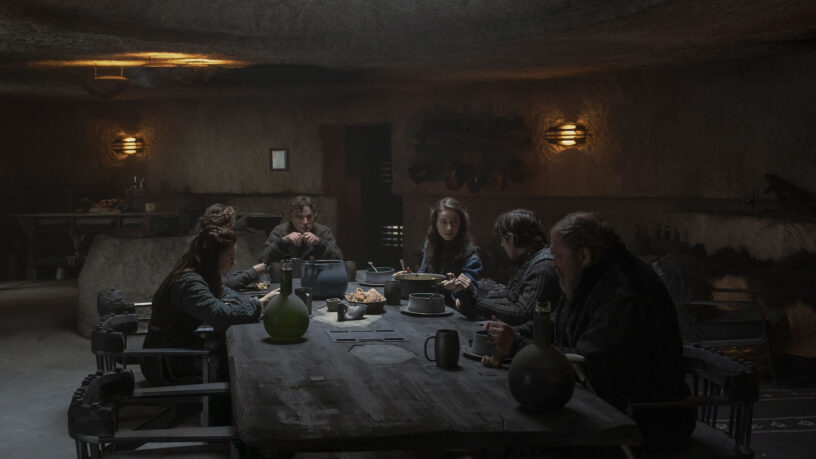Valya may seem like the more vengeful of the Harkonnen sisters, but this flashback-heavy third episode of HBO’s Dune: Prophecy TV series reveals that Tula was the first to draw the blood of their enemies.
Valya has always maintained the image of a hardened, no-nonsense Mother Superior. There is barely a hint of her annoyance during this episode’s opening when she says, “This is not the first time an adversary has sought to remove me. Like the others, this soldier will learn.” But now, we also get to see the hardness in the seemingly sympathetic Tula, as this episode steps back from the main storyline to provide their troubled back story.
Note: This article contains spoilers for events in Dune Prophecy episode 3.
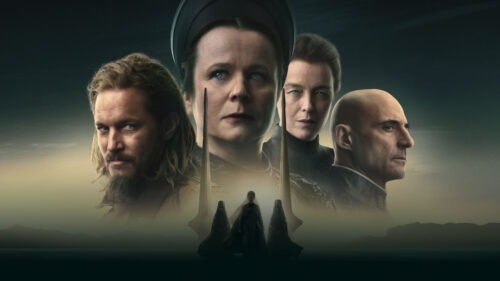
Hidden Strengths
The contrast between the two sisters soon rises to the surface. We see that starting from her youth, Tula has been driven by care for her family and for life. She is distraught at the untimely death of her brother. She shows compassion for an injured horse and a desire to ease its passing when she realizes it cannot be saved. She is kind to a young boy and teaches him how to prepare bait for an Atreides hunting party, and she expresses vulnerability with her Atreides lover.
Meanwhile, the young Valya appears to be driven mainly by anger at injustice in her family’s past. She cares about her brother and sister, but is set on vengeance against those who have wronged the Harkonnen name. Even after being sent off to school at the Sisterhood, she remains unable to let go of her past and make a full commitment to the order. It is only when Mother Superior Raquella is impressed by her special vocal ability that Valya has a reason to give the Sisterhood another chance.
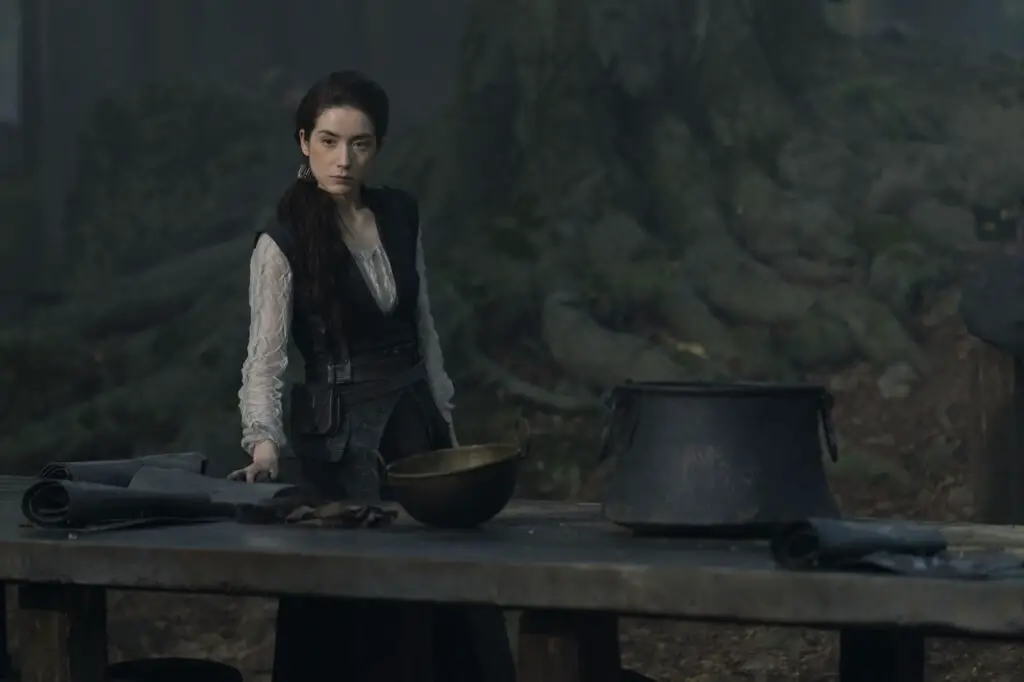
Yet it is Tula who turns out to be the more cold-hearted of the two. The episode foreshadows her lethal deed during her exchange with the young boy, when she instructs him how to carefully handle the poisonous sack of animal innards used to bait the Salusan bull on the hunt. Pointing to the sack, she tells him, “True strength isn’t always something you see from the outside.” This statement neatly sums up the heart of the Sisterhood’s method of operation and how women’s power can appear in non-traditional forms. It also points to the deception in Tula’s seemingly soft appearance.
Later, in a scene reminiscent of the Red Wedding episode in The Game of Thrones, we see the entire hunting party lying dead on the forest ground, presumably from poison she had put into their soup. But she dispatches her lover personally and cradles him through her apology, and lets the young boy escape. Her nature still seems to be on the side of kindness, and as an adult, her fondness for her pupil Lila drives her attempt to secretly save the acolyte using forbidden technology.
A New Purpose
Despite Valya’s initial resistance to the Sisterhood, both she and Tula come to view it as the pathway to a fresh start and a new purpose. It is a place of military-style training that demands deep commitment, like that of a religious order. But it offers the opportunity for growth and acceptance, unlike their unsympathetic family members who call Valya a wolf and a sorceress and seem resentful that she would aspire to anything other than a hard life with no prospects.
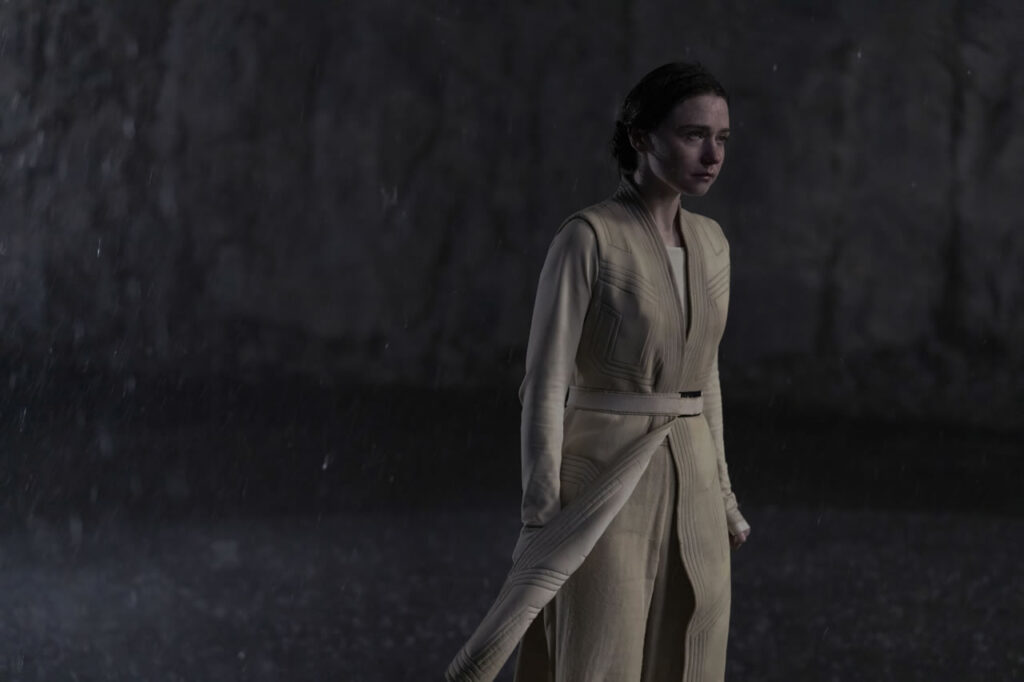
We see that the Sisterhood offers these women more than a quiet life settling down with a spouse or carrying on the same old family business. It means giving something up, but gaining much more. When Valya says she wants to make a contribution to the world, to not stay complacent, we can understand her longing for more and the seeds of her desire to prove herself and rise in the ranks. Raquella is the mentor she’s been waiting for, and Valya’s survival of the agony (through a DIY travel kit, no less!) marks the beginning of her true commitment.
The Forbidden
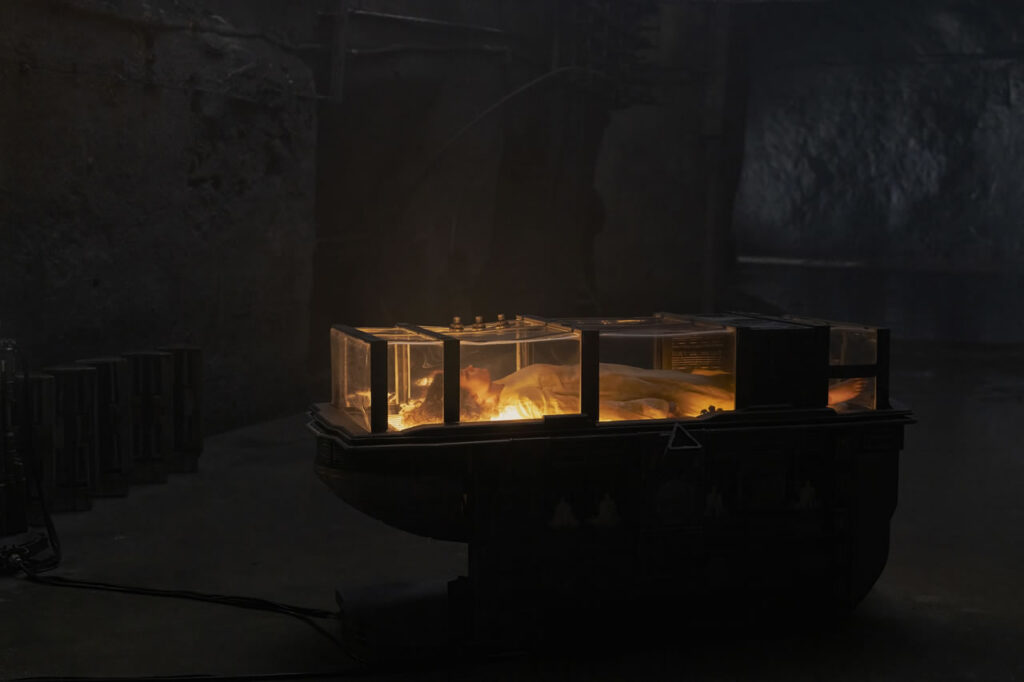
What undercuts the development of the Sisterhood is the reveal of the forbidden technology in the secret lab. Their entire purpose is to train human talents and no longer allow machines and technology to form a threat to humanity. This kind of element feels like generic science fiction and doesn’t add anything to the building of the human-focused Dune universe. I’d rather see the progression of uniquely Bene Gesserit skills than another fancy cryo-type setup. In addition, there were too many Game of Thrones vibes that took me out of the world of Dune, including Tula’s generic pseudonym (Vale), the snowy location of Lankiveil, and the sisters’ uncle, Evgeny Harkonnen, being played by the same actor who played King Robert Baratheon.
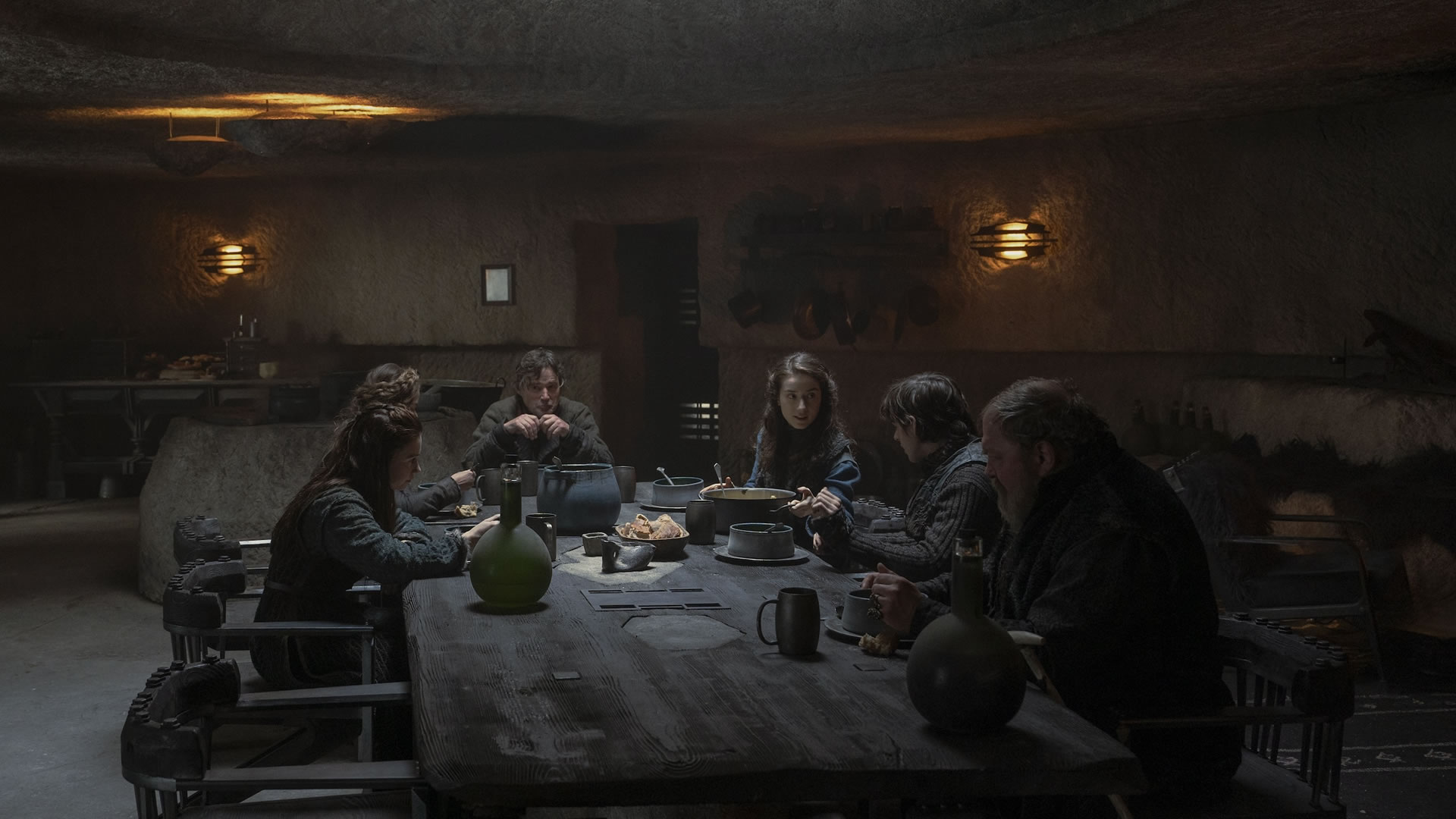
Thanks to Warner Bros. Discovery for providing Dune News Net team members with review screeners for this episode of Dune: Prophecy.


